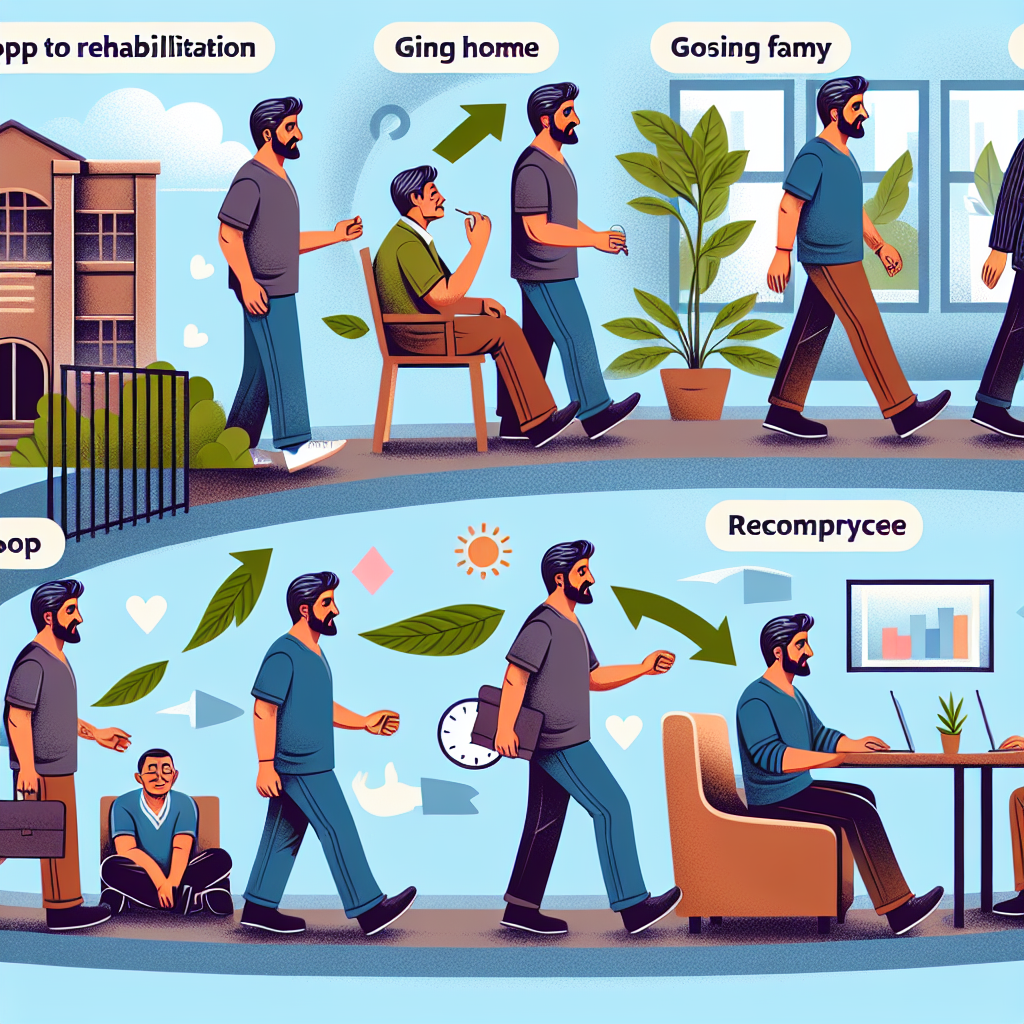-
Table of Contents
- Introduction
- Understanding the Role of Cognitive Behavioral Therapy in Cocaine Addiction Recovery
- The Benefits of Group Therapy for Individuals Battling Cocaine Addiction
- How Family Therapy Can Support Cocaine Addiction Recovery
- The Effectiveness of Holistic Therapy Approaches in Treating Cocaine Addiction
- Q&A
- Conclusion
“Transforming Lives: The Power of Therapy in Overcoming Cocaine Addiction”
Introduction
The Impact of Therapy on Cocaine Addiction Recovery
Cocaine addiction is a pervasive and debilitating condition that affects millions of individuals worldwide, leading to severe physical, psychological, and social consequences. Effective treatment strategies are crucial for addressing this complex disorder, and therapy has emerged as a cornerstone in the recovery process. Various therapeutic approaches, including cognitive-behavioral therapy (CBT), contingency management, and motivational interviewing, have demonstrated significant efficacy in helping individuals overcome cocaine dependence. These therapies not only address the underlying psychological factors contributing to addiction but also equip individuals with coping mechanisms and relapse prevention strategies. By fostering a supportive and structured environment, therapy plays a pivotal role in facilitating long-term recovery and improving the overall quality of life for those struggling with cocaine addiction.
Understanding the Role of Cognitive Behavioral Therapy in Cocaine Addiction Recovery
Cocaine addiction is a formidable challenge that affects countless individuals and their families. The journey to recovery is often fraught with obstacles, but one of the most effective tools in overcoming this addiction is Cognitive Behavioral Therapy (CBT). Understanding the role of CBT in cocaine addiction recovery can provide hope and a clear path forward for those struggling with this debilitating condition.
Cognitive Behavioral Therapy is a structured, time-limited, and goal-oriented form of psychotherapy that focuses on the interplay between thoughts, feelings, and behaviors. It is based on the premise that negative thought patterns and beliefs can lead to harmful behaviors, such as substance abuse. By identifying and challenging these cognitive distortions, individuals can develop healthier coping mechanisms and ultimately reduce their reliance on cocaine.
One of the key components of CBT is its emphasis on self-awareness. Through guided sessions with a trained therapist, individuals learn to recognize the triggers and situations that lead to their cocaine use. This heightened awareness is crucial because it allows individuals to anticipate and prepare for high-risk scenarios, thereby reducing the likelihood of relapse. For instance, a person might discover that stress at work or social gatherings where cocaine is present are significant triggers. With this knowledge, they can develop strategies to manage these situations more effectively.
Moreover, CBT equips individuals with practical skills to cope with cravings and urges. Techniques such as cognitive restructuring help individuals reframe their thoughts and challenge the belief that they need cocaine to function or feel good. Behavioral strategies, such as engaging in alternative activities or practicing relaxation techniques, provide tangible ways to manage cravings. Over time, these new patterns of thinking and behavior become ingrained, making it easier to maintain sobriety.
Another vital aspect of CBT is its focus on problem-solving. Addiction often stems from an inability to cope with life’s challenges. CBT helps individuals develop a toolkit of problem-solving skills that can be applied to various aspects of their lives. Whether it’s improving communication in relationships, managing stress, or setting and achieving personal goals, these skills empower individuals to navigate life’s complexities without resorting to cocaine use.
The benefits of CBT extend beyond the individual to their support network. Family and friends play a crucial role in the recovery process, and CBT often involves them in therapy sessions. This inclusive approach fosters a supportive environment where loved ones can learn about addiction, understand the challenges their family member faces, and develop strategies to provide effective support. This collective effort can significantly enhance the individual’s chances of long-term recovery.
Furthermore, the structured nature of CBT provides a clear framework for progress. Unlike some forms of therapy that may be open-ended, CBT typically involves a set number of sessions with specific goals and milestones. This structure can be particularly motivating for individuals in recovery, as it allows them to see tangible progress and build confidence in their ability to overcome addiction.
In conclusion, Cognitive Behavioral Therapy offers a comprehensive and effective approach to cocaine addiction recovery. By fostering self-awareness, equipping individuals with coping and problem-solving skills, and involving their support network, CBT addresses the multifaceted nature of addiction. While the journey to recovery is undoubtedly challenging, the principles and techniques of CBT provide a beacon of hope, guiding individuals toward a healthier, drug-free life.
The Benefits of Group Therapy for Individuals Battling Cocaine Addiction
Group therapy has emerged as a powerful tool in the battle against cocaine addiction, offering a unique blend of support, accountability, and shared experience that can significantly enhance the recovery process. For individuals grappling with the challenges of cocaine addiction, the journey to sobriety can often feel isolating and overwhelming. However, group therapy provides a communal environment where participants can connect with others who understand their struggles, fostering a sense of belonging and mutual encouragement.
One of the primary benefits of group therapy is the opportunity for individuals to share their experiences and hear the stories of others. This exchange of personal narratives can be incredibly validating, as it helps participants realize that they are not alone in their struggles. Hearing about the successes and setbacks of others can also provide valuable insights and strategies for managing their own recovery. Moreover, the act of sharing one’s story can be cathartic, allowing individuals to process their emotions and experiences in a supportive setting.
In addition to emotional support, group therapy offers a structured environment where individuals can learn and practice essential coping skills. Facilitated by trained therapists, these sessions often include educational components that address the psychological and behavioral aspects of addiction. Participants can learn about the triggers and underlying issues that contribute to their cocaine use, as well as develop strategies for avoiding relapse. The collaborative nature of group therapy means that individuals can practice these skills in real-time, receiving immediate feedback and support from both the therapist and their peers.
Another significant advantage of group therapy is the sense of accountability it fosters. Knowing that they will be sharing their progress with the group can motivate individuals to stay committed to their recovery goals. This accountability is further reinforced by the bonds that form within the group. As participants build trust and rapport with one another, they become invested in each other’s success. This mutual investment can create a powerful sense of responsibility, encouraging individuals to stay on track not only for their own sake but also for the sake of their peers.
Furthermore, group therapy can help individuals develop a stronger sense of self-efficacy. Witnessing the progress of others who are further along in their recovery journey can inspire hope and confidence. It demonstrates that change is possible and that they too can overcome their addiction. This sense of empowerment is crucial, as it can counteract the feelings of helplessness and despair that often accompany addiction.
The communal aspect of group therapy also extends beyond the therapy sessions themselves. Many groups form strong social networks that provide ongoing support outside of the formal therapy setting. These connections can be invaluable, offering a source of encouragement and companionship during difficult times. For many individuals, these relationships become a cornerstone of their recovery, providing a sense of community and belonging that is essential for long-term sobriety.
In conclusion, group therapy offers a multifaceted approach to cocaine addiction recovery that addresses both the emotional and practical aspects of the journey. By providing a supportive environment where individuals can share their experiences, learn coping skills, and build accountability, group therapy can significantly enhance the recovery process. The sense of community and mutual support that develops within these groups can inspire hope, foster resilience, and ultimately help individuals achieve lasting sobriety.
How Family Therapy Can Support Cocaine Addiction Recovery
Family therapy can play a pivotal role in the recovery process for individuals struggling with cocaine addiction. This therapeutic approach not only addresses the individual’s substance use but also considers the broader family dynamics that may contribute to or be affected by the addiction. By involving family members in the treatment process, family therapy aims to create a supportive environment that fosters healing and long-term recovery.
One of the primary benefits of family therapy in cocaine addiction recovery is the opportunity to improve communication within the family unit. Addiction often leads to strained relationships, misunderstandings, and a breakdown in communication. Through guided sessions, family members can learn to express their feelings and concerns in a constructive manner. This open dialogue helps to rebuild trust and understanding, which are essential components of a supportive recovery environment.
Moreover, family therapy provides a platform for family members to gain a deeper understanding of addiction as a disease. Many people mistakenly view addiction as a moral failing or a lack of willpower. By educating families about the complexities of addiction, therapists can help to dispel these myths and reduce the stigma associated with substance use disorders. This newfound knowledge can foster empathy and compassion, which are crucial for supporting a loved one through the recovery process.
In addition to improving communication and understanding, family therapy can also address any co-occurring issues that may be present within the family. For instance, unresolved conflicts, mental health issues, or unhealthy coping mechanisms can all contribute to an environment that may inadvertently enable addiction. By identifying and addressing these underlying issues, family therapy can help to create a healthier and more stable home environment, which is conducive to recovery.
Furthermore, family therapy can empower family members to set healthy boundaries and develop effective strategies for supporting their loved one’s recovery. It is not uncommon for family members to engage in enabling behaviors, such as providing financial support or covering up for the individual’s actions, in an attempt to help. However, these behaviors can often perpetuate the cycle of addiction. Through therapy, families can learn to set clear boundaries and provide support in ways that encourage accountability and personal responsibility.
Another significant aspect of family therapy is the emphasis on relapse prevention. Recovery from cocaine addiction is a long-term process, and the risk of relapse is always present. Family therapy can equip families with the tools and strategies needed to recognize early warning signs of relapse and intervene appropriately. By working together, families can create a relapse prevention plan that includes coping strategies, support systems, and contingency plans for managing potential triggers.
The impact of family therapy on cocaine addiction recovery extends beyond the individual in treatment. It can lead to positive changes in the overall family dynamic, fostering a more supportive and cohesive family unit. This strengthened family bond can provide a solid foundation for the individual’s ongoing recovery journey, offering a source of encouragement and motivation.
In conclusion, family therapy is a valuable component of cocaine addiction recovery that addresses the multifaceted nature of addiction. By improving communication, fostering understanding, addressing co-occurring issues, setting healthy boundaries, and focusing on relapse prevention, family therapy can create a supportive environment that enhances the likelihood of long-term recovery. The collaborative effort of the family unit can inspire hope and resilience, demonstrating that recovery is not only possible but achievable with the right support system in place.
The Effectiveness of Holistic Therapy Approaches in Treating Cocaine Addiction
The journey to recovery from cocaine addiction is often fraught with challenges, but the effectiveness of holistic therapy approaches offers a beacon of hope for many individuals. Holistic therapy, which emphasizes treating the whole person rather than just the symptoms of addiction, has gained traction as a powerful method in the fight against cocaine dependency. By integrating physical, emotional, and spiritual healing, holistic therapy provides a comprehensive framework that addresses the multifaceted nature of addiction.
One of the key components of holistic therapy is its focus on the mind-body connection. Traditional treatment methods often concentrate solely on the physical aspects of addiction, such as detoxification and medication. However, holistic therapy recognizes that mental and emotional health are equally crucial in the recovery process. Techniques such as mindfulness meditation, yoga, and acupuncture are employed to help individuals reconnect with their bodies and minds. These practices not only reduce stress and anxiety but also promote a sense of inner peace and balance, which are essential for long-term recovery.
Moreover, holistic therapy approaches often include nutritional counseling and exercise regimens. Cocaine addiction can wreak havoc on the body, depleting essential nutrients and weakening the immune system. By incorporating a balanced diet and regular physical activity into the treatment plan, individuals can restore their physical health and build resilience against future cravings. Nutritional counseling helps to replenish the body with vital nutrients, while exercise releases endorphins, the body’s natural mood elevators, which can significantly improve mental well-being.
In addition to physical and mental health, holistic therapy also addresses the spiritual dimension of recovery. Many individuals struggling with addiction feel a profound sense of emptiness or lack of purpose. Holistic therapy encourages the exploration of spirituality, whether through religious practices, nature, or personal reflection. This spiritual exploration can provide individuals with a deeper sense of meaning and connection, which is often missing in the throes of addiction. By fostering a sense of purpose and belonging, holistic therapy helps individuals build a solid foundation for a drug-free life.
Another significant aspect of holistic therapy is its emphasis on personalized treatment plans. Recognizing that each individual’s experience with addiction is unique, holistic therapy tailors its approaches to meet the specific needs of each person. This personalized care ensures that all aspects of an individual’s life are considered, from their personal history and family dynamics to their career and social relationships. By addressing these unique factors, holistic therapy can more effectively support individuals in their recovery journey.
Furthermore, holistic therapy often incorporates group therapy and support networks, which play a crucial role in the recovery process. Sharing experiences and challenges with others who are on a similar path can provide invaluable emotional support and encouragement. These connections help to break the isolation that often accompanies addiction and foster a sense of community and accountability. Group therapy sessions offer a safe space for individuals to express their feelings, learn from others, and build lasting relationships that can support their ongoing recovery.
In conclusion, the effectiveness of holistic therapy approaches in treating cocaine addiction lies in their comprehensive and integrative nature. By addressing the physical, mental, and spiritual dimensions of addiction, holistic therapy provides a well-rounded and personalized path to recovery. Through practices that promote overall well-being, individuals are empowered to reclaim their lives and build a future free from the grip of addiction. The journey may be challenging, but with the support of holistic therapy, recovery is not only possible but also sustainable and fulfilling.
Q&A
1. **Question:** How does cognitive-behavioral therapy (CBT) impact cocaine addiction recovery?
**Answer:** Cognitive-behavioral therapy (CBT) helps individuals recognize and change negative thought patterns and behaviors associated with cocaine use, improving coping strategies and reducing relapse rates.
2. **Question:** What role does contingency management play in treating cocaine addiction?
**Answer:** Contingency management provides tangible rewards for positive behaviors, such as maintaining sobriety, which reinforces abstinence and increases treatment retention rates.
3. **Question:** How effective is group therapy in the recovery process for cocaine addiction?
**Answer:** Group therapy offers peer support and shared experiences, which can enhance motivation, reduce feelings of isolation, and provide practical advice for overcoming addiction, contributing to improved recovery outcomes.
4. **Question:** Can family therapy contribute to the recovery of a cocaine addict?
**Answer:** Family therapy addresses dysfunctional family dynamics and improves communication, providing a supportive environment that can enhance the recovery process and reduce the likelihood of relapse.
Conclusion
Therapy plays a crucial role in the recovery from cocaine addiction by addressing the psychological and behavioral aspects of the disorder. Various therapeutic approaches, such as cognitive-behavioral therapy (CBT), contingency management, and motivational interviewing, have been shown to be effective in reducing cocaine use and preventing relapse. These therapies help individuals develop coping strategies, enhance motivation for change, and build a support system, which are essential for long-term recovery. Additionally, therapy can address co-occurring mental health issues, thereby improving overall treatment outcomes. In conclusion, therapy is a vital component of comprehensive cocaine addiction treatment, significantly contributing to sustained recovery and improved quality of life for individuals struggling with this addiction.



